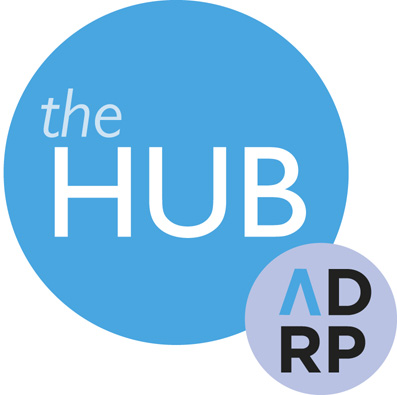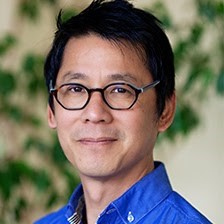 Belonging & Donor Organizing: a Conversation with Steve Lew Belonging & Donor Organizing: a Conversation with Steve Lew
Anna Morrison (Editor, The Hub)
Endowment Reporting Coordinator
University of California, Berkeley
xučyun (Huichin) Ohlone Land
 Steve Lew is a project director at CompassPoint, an Oakland, California, nonprofit dedicated to helping “leaders, nonprofit organizations, and movements committed to social justice realize their full power.” Over his 24 years at CompassPoint, Steve has held roles in donor relations and business development, along with training and coaching nonprofit leaders. He learned about fundraising and building donor relationships through the Grassroots Fundraising Journal, served on the board of the Grassroots Institute for Fundraising Training (GIFT), and designed and led the Fundraising Academy for Communities of Color for over ten years and the Fundraising Bright Spots series through CompassPoint for the past six years. One of the newer CompassPoint workshops is entitled From Fundraiser to Resource Mobilizer: Changing Our Perspectives and Practices to Shift Power. If you attended Vu Le’s keynote address at the ADRP 2021 Conference, some ideas in this workshop might resonate:
Many fundraising models and “best practices” center on the idea that wealthy donors are the heroes of the story. What would resourcing our missions look like if we were more like donor organizers deepening the civic and political journeys of all of our supporters instead?
As defined by the Resource Mobilizer Collaborative, resource mobilizers are people who facilitate the flow of both financial and non-financial resources, including executive directors, development directors, other nonprofit staff, as well as unpaid organizers, neighborhood leaders, and volunteers. Though Steve’s presentation is geared toward fundraisers, I was eager to hear his thoughts on how the territory he’s exploring might apply to the field of donor relations. Towards the beginning of our conversation, I used the acronym DEIBJ (Diversity, Equity, Inclusion, Belonging, Justice), and this provided the jumping-off point for Steve’s reflections.
STEVE LEW: Belonging resonates with me around donor relationships. It’s a human need that is universal and that many of us pay attention to in cultivation. We try to show donors how they make a difference in our work. And I think that’s one key question: do we cultivate belonging just by thanking donors for their contributions or appealing to their values? When we have the chance to have conversations with our donors, do we try to understand their life experiences, which could be very different from those of the people our organization seeks to serve?
For example, think about a food bank trying to work on behalf of people at the margins of hunger and a donor who may never have experienced hunger but still wants to be a part of the work to address it. So how do we help the donor connect their life experience in a way that says: It’s not just about the money I give. I need to learn beyond my own experience, my worldview, and perhaps my values. To understand the root causes of most issues, to learn from people closest to the challenge can cause discomfort, so for many donors, their need to belong and what we call cultivation can be uncomfortable and difficult.
Sometimes, we don’t have time to do that work. Sometimes, we assume that the donation itself is key—you belong to the work of our organization because you gave this generous gift. That’s the piece we’re still trying to unravel because it continues to pivot on the transactional. Even though we talk about how we don’t want to build transactional relationships in philanthropy, it still feels like your ticket to belonging—and to us using the words “we” or “you” in our expressions of gratitude—is the fact that you gave this gift.
The workshop, Fundraiser to Resource Mobilizer: Changing Our Perspectives and Practices to Shift Power, attempts to address this tension in our roles. Whether it’s in our communications, our one-on-one conversations, or how we encourage donors to organize people from their constituency—when we have opportunities, how much are we paying attention to the political journey our donors are taking? We call it a political journey, but it could also be cultivation. Paying attention to the donor’s political journey involves a conscious effort to say that we all deserve to be growing—we all deserve to be respected in our particular part of the journey—if we are trying to move in a similar direction.

Adobe Stock | Rawpixel.com
ANNA MORRISON: Thank you. That’s a lovely description of how belonging is inherently part of our work in donor relations.
LEW: Are you familiar with Resource Generation? They’re a vivid example of people with wealth, often young people with wealth, who are trying to break that traditional relationship contract of philanthropy. Resource Generation asks, what is our awareness as people with wealth? What’s the why behind our giving? What’s the why this work is necessitated on? It’s people with wealth who are actively trying to build a different kind of relationship. I mention them because they are modeling on the donor side people who really want to be on a political journey, who want to belong to social change movements.
Another part I can speak to as a donor. My life experience doesn’t necessarily make me a part of an organization about which I care deeply, namely the Chinese Progressive Association (CPA). Their mission is on behalf of low-wage workers and involves organizing workers' power, whether it’s unionizing or demanding back wages that were stolen from them. I grew up middle class. Except when I was very young, I never worked in a minimum-wage job. And I’m not an immigrant. But I’ve given major donor contributions over the past twenty years because of my Chinese American heritage and, I’d say the last ten years, I feel like I’ve gotten closer, in more solidarity, by supporting and working with CPA staff, many of whom come from working-class, immigrant backgrounds. To get closer, being in solidarity and belonging, I’ve had to be open to challenging my worldview. That’s where feedback comes in, which is tricky. The idea that you could push back a bit and say to a donor, You know, when you provide that analysis about how we do our work, I just want to say that we look at it differently. Would you be open to hearing a different perspective on it? This especially comes into play when something could be perceived as a microaggression or expressing a charity point-of-view (i.e., Oh, those poor people. They don’t have the education. They don’t know how to feed themselves).
MORRISON: I’m fortunate to have strong examples in my life of people who have taken remarkable political journeys, rooted in their involvement in community work, and to have experienced that myself. But I guess I wonder if that willingness to grow shouldn’t be taken for granted?
LEW: I think the human need for belonging also couples with our human need to grow. And we can try to create an environment with our donors where they recognize that being on their political journey is not just bringing their worldview and having it affirmed, but actually learning, being corrected. Sometimes, as donor-centric people, we shy away from that.
MORRISON: Could you say more about the political journey? Is that your phrase in this context?
LEW: “Political journey” is a term I associate with community organizers, most recently Mario Lugay of Justice Funders and other resource mobilizers. As donor relations or fundraising professionals, we try to take people on a journey. We’re hoping to engage people. Even if the journey is about feeling more deeply committed to us, it still requires education, an attempt to connect to values. In our nonprofit-fundraising mode, we talk about donor education, but we don’t necessarily talk about what we’re educating around, and sometimes education turns into fluff. We might say, “25% of our city experiences hunger,” hoping in part that describing the severity of the problem will shock the donor into giving more rather than talking about the roots of hunger and why this problem is continually growing. It’s not because there isn’t enough money; it’s because of food deserts, redlining and marginalizing non-white communities, a history of systematic oppression. That’s a political analysis—not in the sense of Democrat or Republican—but because it looks at the world in terms of an imbalance of power and recognizes the type of society we’re in and the ideologies that keep it in place.
Sometimes as fundraisers and donor relations folks, we can underestimate people too or make assumptions about the life experiences of donors based on their appearances. So, if we’re going to be on this journey together, let’s try to make sure that we’re understanding some of the aspects that may be more challenging or uncomfortable to discuss. And that’s the “J” piece of DEIBJ—the justice.
MORRISON: Since your November 30th workshop is full, I assume you are seeing great interest in this conversation?
LEW: Yes. I’m seeing this type of questioning, a hunger to consider different approaches that might accelerate the philanthropic impulse. It’s happening in many places. The folks attending our workshop are mostly from smaller organizations, though we also have people from larger institutions. Mostly, people are showing up with the desire to make their jobs more fulfilling. Also, especially for many young people of color, there’s the sense that the fundraising profession feels out of touch and inaccessible to them. For those of us who’ve been in fundraising for a while, we might feel weary from accommodating and perpetuating some old ideas and habits of White supremacy culture about how we should work with each other.

Photo credit: Adobe Stock | zinkevych
MORRISON: Do you think that generation is a significant factor? Or is that underestimating our donors?
LEW: Generation is definitely moving some of this. The Community-Centric Fundraising Slack community and events mostly seem to have people in their 20s, 30s, and 40s. And there’s a hunger in these people coming into nonprofit work who are witnessing how philanthropy keeps failing when it promises to be social justice or racial justice.
I think underestimating comes into play for those of us who haven’t had the opportunity to work with donors who desire this different relationship or those of us who haven’t had the time and privilege to be in conversation versus a five-minute phone call. There are donors who have concerns about climate change, racial justice, and wealth inequality but don’t know how to put words to it. So we can help them through this dialogue when they’re thinking about why they give to us.
MORRISON: Will you be offering this workshop again in the future?
LEW: Yes, this is an ongoing offering from CompassPoint, and our 2022 dates can be found here.

Back to the November 2021 Hub
|